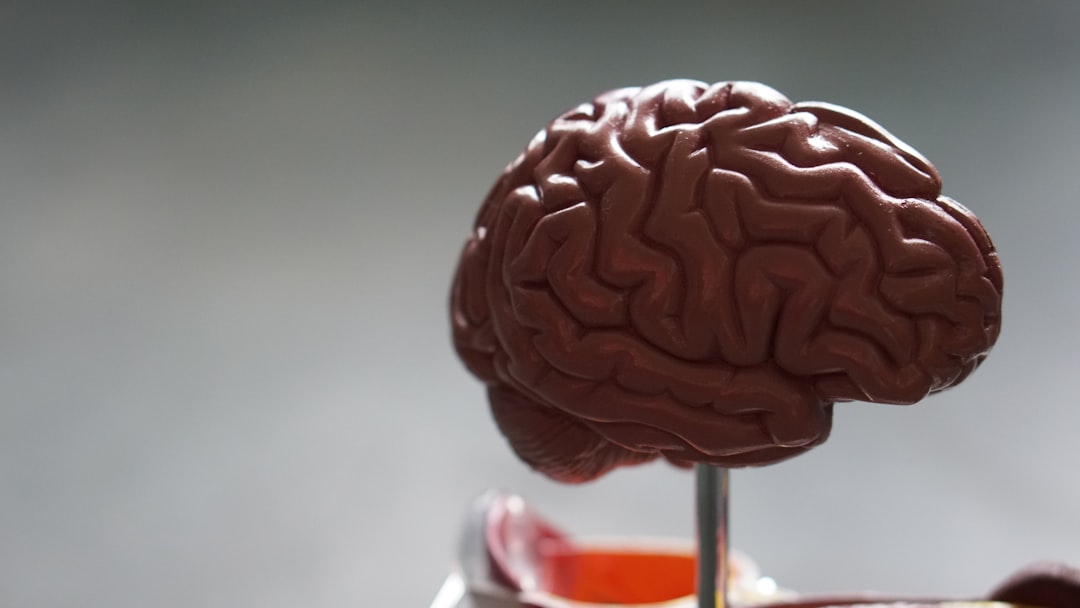ADHD and anxiety often coexist, with research suggesting that individuals with ADHD are at a higher risk of developing anxiety disorders. The relationship between the two conditions is complex and multifaceted. ADHD is characterized by symptoms such as inattention, hyperactivity, and impulsivity, while anxiety disorders involve excessive worry, fear, and apprehension. It is not uncommon for individuals with ADHD to experience symptoms of anxiety, such as restlessness, irritability, and difficulty concentrating. The presence of anxiety can further exacerbate the challenges associated with ADHD, making it harder for individuals to manage their symptoms effectively.
Furthermore, the overlap in symptoms between ADHD and anxiety can make it challenging to differentiate between the two conditions. For example, inattention and difficulty concentrating are hallmark symptoms of both ADHD and anxiety, which can lead to misdiagnosis or underdiagnosis of either condition. Understanding the relationship between ADHD and anxiety is crucial for providing comprehensive and effective treatment. It is essential to address both conditions simultaneously to improve the overall well-being and functioning of individuals with co-occurring ADHD and anxiety.
Key Takeaways
- ADHD and anxiety often coexist, with individuals with ADHD being at a higher risk for developing anxiety disorders.
- ADHD medication can help manage anxiety symptoms in individuals with ADHD, but it is important to work closely with a healthcare professional to find the right medication and dosage.
- Proper ADHD testing and diagnosis is crucial for identifying and addressing the underlying causes of anxiety in individuals with ADHD.
- Self-care strategies such as regular exercise, mindfulness, and a healthy diet can help individuals with ADHD manage their anxiety symptoms.
- It is important to be aware of the potential side effects and risks of ADHD medication for anxiety, and to discuss these with a healthcare professional before starting treatment.
- Alternative therapies such as cognitive-behavioral therapy, mindfulness meditation, and relaxation techniques can be effective in managing anxiety in individuals with ADHD.
- Consulting with a healthcare professional is essential for developing personalized treatment options that address both ADHD and anxiety symptoms.
The Role of ADHD Medication in Managing Anxiety Symptoms
ADHD medication, such as stimulants (e.g., methylphenidate, amphetamine-based medications) and non-stimulants (e.g., atomoxetine, guanfacine), is commonly prescribed to manage the core symptoms of ADHD. However, research has also shown that these medications can have a positive impact on anxiety symptoms in individuals with ADHD. Stimulant medications, in particular, have been found to reduce anxiety symptoms by improving attention, impulse control, and emotional regulation. By addressing the underlying symptoms of ADHD, these medications can indirectly alleviate anxiety symptoms and improve overall functioning.
Non-stimulant medications, while not directly targeting anxiety symptoms, can also be beneficial for individuals with ADHD and co-occurring anxiety. These medications work by targeting different neurotransmitters and brain pathways involved in ADHD, which can lead to improvements in attention, hyperactivity, and impulsivity. As a result, individuals may experience a reduction in anxiety symptoms as they gain better control over their ADHD-related challenges. It is important to note that the response to medication can vary from person to person, and finding the right medication and dosage may require careful monitoring and adjustment by a healthcare professional.
The Importance of Proper ADHD Testing and Diagnosis
Accurate testing and diagnosis of ADHD are essential for identifying individuals who may also be experiencing symptoms of anxiety. Proper evaluation by a qualified healthcare professional, such as a psychiatrist or psychologist, is crucial for differentiating between ADHD and anxiety disorders. Comprehensive assessment tools, including clinical interviews, behavior rating scales, and cognitive testing, can help in identifying the presence of ADHD and any co-occurring conditions, such as anxiety.
It is important for healthcare professionals to consider the impact of anxiety on the presentation of ADHD symptoms during the diagnostic process. Anxiety can mask or exacerbate certain ADHD symptoms, making it essential to thoroughly evaluate the individual’s overall functioning and mental health. Additionally, ruling out other potential causes of symptoms, such as learning disabilities or mood disorders, is important for making an accurate diagnosis. A thorough understanding of the individual’s developmental history, family dynamics, and environmental factors can also provide valuable insights into their presenting symptoms.
Self-Care Strategies for Managing Anxiety in Individuals with ADHD
| Self-Care Strategy | Description |
|---|---|
| Regular Exercise | Engaging in physical activity to reduce anxiety and improve mood. |
| Mindfulness and Meditation | Practicing mindfulness and meditation to calm the mind and reduce stress. |
| Healthy Diet | Eating a balanced diet to support overall well-being and mental health. |
| Adequate Sleep | Ensuring sufficient and quality sleep to manage anxiety and improve focus. |
| Stress Management Techniques | Learning and practicing stress management techniques such as deep breathing and progressive muscle relaxation. |
In addition to medication and professional support, individuals with ADHD and anxiety can benefit from incorporating self-care strategies into their daily routine. These strategies can help manage anxiety symptoms and improve overall well-being. Regular exercise, such as yoga, walking, or swimming, can be particularly beneficial for reducing anxiety and improving attention and impulse control in individuals with ADHD. Engaging in mindfulness practices, such as meditation or deep breathing exercises, can also help calm the mind and reduce feelings of restlessness and worry.
Establishing a structured daily routine and setting realistic goals can provide a sense of predictability and control, which can be particularly helpful for individuals with ADHD and anxiety. Creating a supportive environment at home and work, with clear expectations and consistent routines, can also contribute to reducing stress and anxiety. Additionally, seeking social support from friends, family members, or support groups can provide a sense of connection and understanding for individuals managing both ADHD and anxiety. It is important for individuals to prioritize self-care activities that promote relaxation, stress reduction, and emotional well-being as part of their overall treatment plan.
Potential Side Effects and Risks of ADHD Medication for Anxiety
While ADHD medication can be effective in managing anxiety symptoms in individuals with co-occurring ADHD, it is important to be aware of potential side effects and risks associated with these medications. Stimulant medications, for example, may have side effects such as increased heart rate, elevated blood pressure, decreased appetite, and difficulty sleeping. These side effects can exacerbate feelings of anxiety in some individuals or lead to other physical health concerns.
Non-stimulant medications also carry potential side effects, including drowsiness, dizziness, and gastrointestinal issues. It is important for individuals to discuss any concerns or side effects with their healthcare provider to determine the best course of action. Additionally, there is a potential risk of misuse or diversion of stimulant medications, particularly in individuals with a history of substance abuse or addiction. Healthcare professionals should carefully monitor individuals prescribed ADHD medication for any signs of misuse or diversion to ensure their safety and well-being.
Alternative Therapies and Interventions for Managing Anxiety in ADHD

In addition to medication and self-care strategies, alternative therapies and interventions can complement traditional treatment approaches for managing anxiety in individuals with ADHD. Cognitive-behavioral therapy (CBT) has been shown to be effective in addressing both ADHD-related challenges and anxiety symptoms. CBT helps individuals identify negative thought patterns and develop coping strategies to manage anxiety-provoking situations. It can also help improve organizational skills, time management, and problem-solving abilities in individuals with ADHD.
Mindfulness-based interventions, such as mindfulness-based stress reduction (MBSR) or mindfulness-based cognitive therapy (MBCT), have also been found to be beneficial for reducing anxiety in individuals with ADHD. These interventions focus on cultivating present-moment awareness and acceptance, which can help individuals regulate their emotions and reduce feelings of worry and restlessness. Additionally, biofeedback training, relaxation techniques, and neurofeedback have shown promise in helping individuals with ADHD learn to manage their anxiety symptoms through self-regulation techniques.
Consulting with a Healthcare Professional for Personalized Treatment Options
Ultimately, consulting with a healthcare professional is crucial for developing personalized treatment options for managing both ADHD and anxiety. A comprehensive assessment by a qualified psychiatrist or psychologist can help determine the most appropriate course of treatment based on the individual’s unique needs and circumstances. This may involve a combination of medication management, therapy, self-care strategies, and alternative interventions tailored to address both conditions effectively.
Healthcare professionals can also provide guidance on potential lifestyle modifications, such as dietary changes or sleep hygiene practices, that may support overall mental health and well-being. Regular monitoring and follow-up appointments are important for evaluating treatment progress and making any necessary adjustments to the treatment plan. By working closely with a healthcare professional, individuals with co-occurring ADHD and anxiety can receive the support and guidance needed to effectively manage their symptoms and improve their quality of life.
If you are interested in learning more about how ADHD medication can help with anxiety, you may want to check out the article “Understanding the Connection Between ADHD and Anxiety” on ADHD-testing.com. This article discusses the potential benefits of ADHD medication in managing anxiety symptoms in individuals with ADHD. It provides valuable insights into the relationship between these two conditions and the potential impact of medication on anxiety symptoms. (source)
FAQs
What is ADHD medication?
ADHD medication refers to drugs that are used to treat attention-deficit/hyperactivity disorder (ADHD). These medications can help improve focus, attention, and impulse control in individuals with ADHD.
How does ADHD medication work?
ADHD medications work by affecting certain neurotransmitters in the brain, such as dopamine and norepinephrine. These neurotransmitters play a role in regulating attention, behavior, and impulse control.
Can ADHD medication help with anxiety?
Some individuals with ADHD may also experience symptoms of anxiety. In some cases, ADHD medication may help alleviate anxiety symptoms by improving focus and reducing impulsivity. However, it is important to note that ADHD medication is not specifically designed to treat anxiety disorders.
What are the potential side effects of ADHD medication?
Common side effects of ADHD medication may include decreased appetite, trouble sleeping, and irritability. In some cases, individuals may also experience increased heart rate and blood pressure. It is important to discuss potential side effects with a healthcare provider before starting ADHD medication.
Is ADHD medication suitable for everyone with ADHD?
ADHD medication may not be suitable for everyone with ADHD. Factors such as individual health history, potential drug interactions, and personal preferences should be considered when determining the appropriateness of ADHD medication for an individual. It is important to consult with a healthcare provider to discuss the best treatment options for ADHD.














